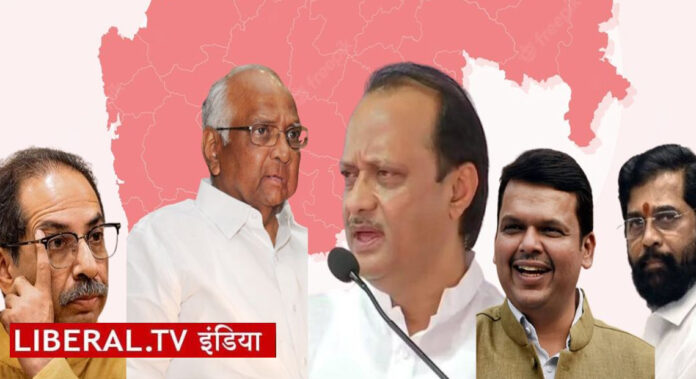The collapse of a massive statue of 17th-century ruler Shivaji Shahaji Bhosale has ignited protests and political controversy in Maharashtra, India, just weeks before the state’s elections. Shivaji, a celebrated warrior king known for his resistance against the Mughals, is a revered figure in the state and a symbol for the Hindu right.
The statue’s fall, which occurred on August 26 amid heavy monsoon rains in Sindhudurg district, has put the state’s ruling coalition under scrutiny and provided a potent issue for opposition parties. The statue, built at a cost of 23.6 million rupees (approximately $281,285 or £214,185), was inaugurated by Prime Minister Narendra Modi in December. Modi, whose Bharatiya Janata Party (BJP) is part of Maharashtra’s ruling coalition, issued a public apology, acknowledging that the collapse has hurt the sentiments of those who revere Shivaji.
The ruling coalition in Maharashtra includes the BJP, along with breakaway factions of the Shiv Sena and the National Congress Party (NCP). Even members of the NCP have participated in “silent protests” demanding action from the state government.
The opposition has called for the resignation of Chief Minister Eknath Shinde, alleging corruption in the statue’s construction. Senior opposition leader Sharad Pawar criticized the government, highlighting that while many Shivaji statues remain intact, only this newly installed one has collapsed. He suggested that corruption was involved, calling the incident an insult to Chhatrapati Shivaji Maharaj.
Chief Minister Shinde has denied the corruption allegations, attributing the collapse to strong coastal winds. State Minister Ravindra Chavan stated that the public works department had informed the Indian Navy—responsible for overseeing the statue’s construction—about rust in its nuts and bolts.
In response to the controversy, Ashish Shelar, the BJP’s state chief, publicly apologized and promised corrective action and punishment for those responsible. The police have arrested the structural consultant for the project and are searching for the sculptor.
Shivaji, formally crowned as Chhatrapati in 1674 at Rajkot fort, ruled a Maratha kingdom that spanned parts of western, central, and southern India. His legacy has become increasingly significant in Maharashtra’s political landscape, where Marathas, particularly from Shivaji’s caste, dominate. With 12 of the 20 chief ministers since the state’s formation being Marathas, political parties are cautious about offending this influential community, which has also been vocal in recent years about demands for quotas in government jobs and educational institutions.
The opposition alliance, Maha Vikas Aghadi (MVA), has organized statewide protests in response to the statue’s collapse. The BJP has countered with its own protests, accusing the MVA of politicizing the issue.



